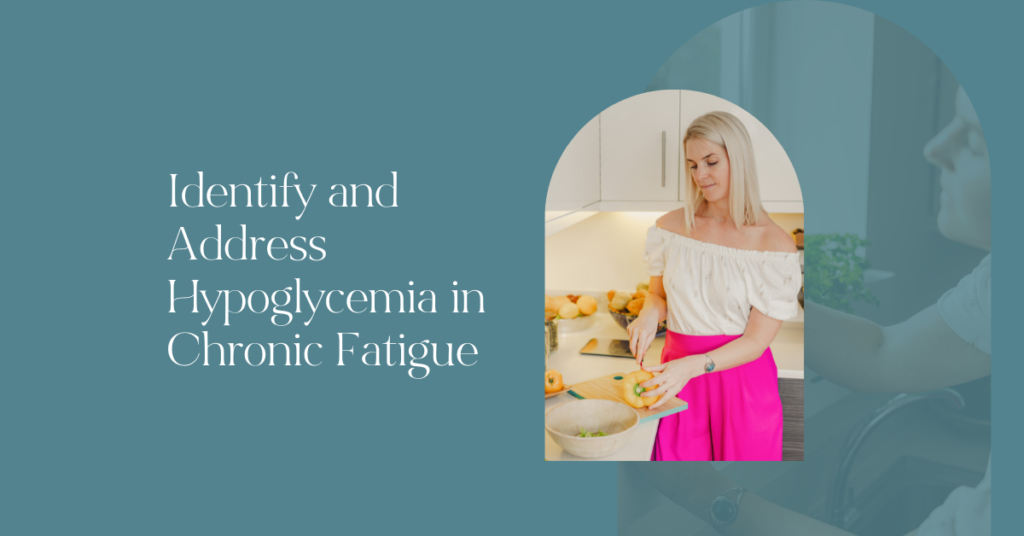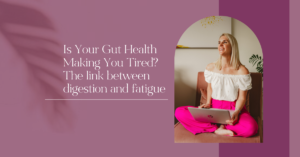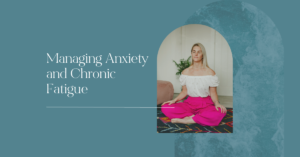Recovering from Chronic Fatigue, Chronic Fatigue Syndromes and Chronic Illness involves unpicking an often complex web of imbalances, one of which could be hypoglycemia. Having a strategic approach which includes doing the right things in the right order, is essential for success.
Establishing control over blood sugar is something that can make or break case outcomes and therefore, if patterns of dysglycemia are identified, this needs to be addressed before moving on to other things.
Patterns of dysglycemia include having blood glucose levels which are too high, blood glucose levels which are too low, or blood glucose levels that fluctuate from high to low.
Whatever the pattern, dysglycemia ultimately means that the body cannot efficiently produce energy and without energy, it is difficult to rebalance physiology and ultimately “heal”.
This blog will specifically focus on strategies to support low blood glucose levels, known as hypoglycemia.
What is hypoglycemia?
There are three types of hypoglycemia:
- Pathological
- Functional
- Reactive
Pathological
Pathological hypoglycemia is when fasting glucose is below 3.6 mmol/L or 65mg/dl. This is usually associated with a disease, exogenous insulin or medications. If you are someone experiencing pathological hypoglycemia you should work with a medical professional to understand the contributing causes, whether that is disease pathophysiology or medications.
Functional Hypoglycemia
Functional Hypoglycemia is when fasting glucose is within the reference range but less than 4.7 mmol/L or 85mg/dL. If Lactate Dehydrogenase (LDH) has been measured, it may be less than 140. Someone with functional hypoglycemia may have symptoms of hypoglycemia that resolve with eating.
Reactive Hypoglycemia
Someone may have reactive hypoglycemia if they experience symptoms of low blood sugar within 4 hours of eating.
Signs and Symptoms of Hypoglycemia
The optimal response to eating a meal is to experience no change in energy. This means that energy should remain the same before a meal and after a meal. An energy slump after a meal can indicate high blood sugar or insulin resistance and experiencing increased energy and/or improved cognitive function after a meal can be a sign of hypoglycemia. In other words, blood sugar was low before the meal and normalised after the meal.
Additionally, clues that you may be hypoglycemia include:
- Craving sweets during the day
- Irritable if a meal is missed
- Dependent on coffee
- Feeling light headed if a meal is missed
- Need to eat frequently
- Eating relieves fatigue
- Feeling shaky and jittery between meals
- Poor memory and forgetfulness
- Blurred vision
- Difficulty waking
- No appetite in the morning
- Difficulty staying asleep throughout the night
- Energy crashes throughout the day
Hypoglycemia can also be associated with:
- Fatigue
- Insomnia
- Depression and mood disorders
- Infertility
- Slow metabolism and difficulty losing weight
- Headaches
- Hormone imbalances
- Adrenal dysfunction
- Cold hands and feet
- Hair falling out
- Unhealthy nails
- Muscle cramps
- Salt cravings
- Unable to stay hydrated
- Chronic muscle tightness
- Inability to handle stress
- Unable to exercise without exhaustion
- Bursts of anxiety
What Happens When Blood Sugar Drops Low?
Provided hypoglycemia cannot be attributed to some underlying disease condition, most people will experience hypoglycemia due to a loss of resiliency. This may be due to the counterregulatory response to low blood sugar which is offered by the adrenal glands.
When blood sugar drops too low, the adrenal glands release epinephrine and cortisol. These are energy liberating hormones that help to liberate stored glucose from the liver and muscle tissue. The resultant effect is an increase in blood glucose.
However, glucose released into the bloodstream also needs to get into the cells. This means that the pancreas must also release a surge of insulin to help get the energy into the cells. At the same time, the pancreas is also producing glucagon which stimulates glucose production in the liver.
This means that in a hypoglycemic event, both the adrenal gland and the pancreas are working very hard to maintain a sense of stability.
In a healthy person, these counterregulatory mechanisms will kick in before you even notice. But when someone has lost resiliency they may be ineffective or delayed and the individual will experience hypoglycemia symptoms.
What To Do If You Suspect Hypoglycemia?
If you are someone who is experiencing hypoglycemic events or noticing increased energy after meals, the first step is to rule out the obvious, which is diet and lifestyle factors that may be contributing to hypoglycemic events. These factors include:
- Missing meals
- Avoiding snacks when needed
- Snacking on high carbohydrate or sugary foods
- Using caffeine or cigarettes to suppress appetite
- Excessive fasting while not fat adapted
- Lack of protein in the diet
- Lack of fibre in the diet
- Lack of healthy fats in the diet
- Too much carbohydrate in the diet
- Overtraining without replenishing glucose stores
If you believe your diet and lifestyle is impacting your blood sugar control then the guide would be to:
- Make sure you eat a high protein based breakfast – ideally from animal protein – every day without fail.
- Eat adequate protein at each meal and snack. Approximately 30g-40g of protein at each main meal as a guide.
- Make sure each meal contains ½ a plate of low carbohydrate vegetables
- Eat healthy fats with every meal such as avocado, olive oil, olives, coconut milk, butter, yoghurt or oil, nuts and seeds, oily fish
- Make sure that all carbohydrate are unprocessed and adjust portion sizes down so that energy can be sustained until the next meal
- Eat as frequently as needed to prevent energy crashes
- Avoid the use of stimulants and simple sugars
- Manage stress
- Ensure sleep is adequate
How Do You Know It Is Working?
You’ll know it is working when:
- You do not have energy crashes throughout the day
- You stop craving sugar throughout the day
- You don’t feel “back to normal” after eating
- You notice that you feel hungry before you lose function
- You can sleep throughout the night and feel rested in the morning
If you aren’t experiencing these benefits, you may need to play around further with your diet and in some cases, transition to a ketogenic diet in a slow and tapered way.
If you achieve all 5 of these outcomes, you can experiment with adding in a little more carbohydrate and fruit as time goes on, provided that symptoms do not return.
Supplements That Support Hypoglycemic Spikes
- Branch Chain Amino Acid
- Phytosterols
- Fibre
- Polyphenols
- Adaptogens for adrenal support; Panax Ginseng, Ashwagandha Extract, Holy Basil, Rhodiola Rosea, Siberian Ginseng
- B vitamins
Is a Ketogenic Diet Appropriate for Someone with Hypoglycemia?
A ketogenic diet may be a useful tool in some cases. However, if you are someone who is experiencing hypoglycemic events, suddenly jumping into a ketogenic diet, would not be a good idea. This should be a slow transition to allow the body to adjust where fats are gently increased and carbohydrates are gently decreased.
If you would like to read more about how to transition to a ketogenic diet, I have written more about the ketogenic diet here.
Is Fasting Appropriate for Someone with Hypoglycemia?
For the most part, fasting isn’t appropriate until someone is adapted to using fat as a fuel source, which usually requires a ketogenic or low carbohydrate diet.
Fasting could be a tool that is used longer term once more stability has been achieved. In the beginning, the goal is to eat as frequently as needed to prevent energy crashes between meals.
I have written more about fasting here.
When there are ongoing symptoms despite eating the “perfect” diet?
In the past I have worked with clients who don’t want to eat more animal protein, give up carbs, stop eating fruit or they have an aversion to eating more fats. They may have a healthy diet from a food quality perspective but the ratio of macronutrients is not appropriate to support blood sugar control given their lack of resiliency.
For this reason, I no longer take on clients who are not prepared to make the changes necessary. Chronic illness is hard enough, even when you aren’t getting in your own way. We cannot move forward in the journey without blood sugar control.
But what about the person who is eating adequate amounts of meat, veg and healthy fats every 3 hours and still experiencing hypoglycemic events? In this scenario, we need to consider metabolic imbalances. These include:
- Pancreatic Alpha Cell Depletion: Repeated low blood sugar events over time cause the pancreatic alpha cells to lose function. Just like the beta cells of the pancreas can get depleted and fail to produce insulin, alpha cells, which produce glucagon (which stimulates the liver to produce glucose) can get depleted too. This is when a ketogenic diet may be helpful to take the burden off the pancreas and allow the alpha cells to recover.
- Adrenal Autoimmunity: when there is an immune attack on adrenal tissue, this may impact the adrenal glands ability to regulate blood sugar. The best way to assess this is by measuring antibodies to 21-hydroxylase. You can do this in Cyrex Array 5.
- Brain Injury: when an area of the brain has become damaged, the surrounding areas increase their energy demand to compensate. This can result in hypoglycemic events. I have written more about how to support the brain here.
- Dysautonomia from brain injury – this usually presents as immediate anxiety, heart rate changes and physiological tremor when blood sugar drops low
- Mitochondrial uncoupling due to malignancy or infection
- Anaemia
- Subtle liver diseases such as chronic hepatitis C
- Disrupted Cortisol Rhythms e.g low cortisol or poor cortisol awakening response. In which case we need to restore cortisol rhythms with:
- Morning light exposure
- 10 minutes of HIIT Movement in the morning within 10 minutes of waking – if tolerated
- Use of Glycyrrhiza within the first 10 minutes of waking
Conclusions
It can be really challenging to move forward in managing a chronic illness when blood sugar hasn’t been stabilised. Hopefully you have found some pointers in this article to get you heading in the right direction. If you want more help and support in your chronic illness / fatigue recovery journey, you can find out more about working with us, here.










